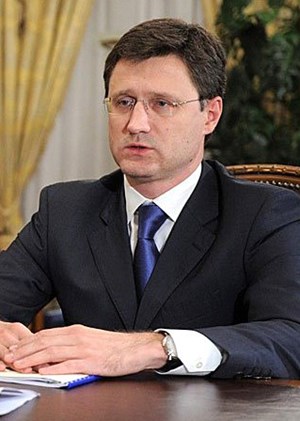Russia's open to relaxing OPEC+ cuts as Saudis urge restraint
LONDON and MOSCOW (Bloomberg) -- From easing the limits to ending the extreme throttling-back that has seen some countries exceed original cutback targets, Russia sees a range of options that would allow OPEC+ to continue output cooperation until year-end.
"One of the options we discussed today is removing the over-compliance, a return to the parameters of the current agreement," Russian Energy Minister Alexander Novak said Sunday in an interview with Bloomberg TV in Jeddah, Saudi Arabia, after a producer group meeting. OPEC+ may need "to tweak the parameters to a certain extent" if monitoring shows full compliance is not enough to prevent a market deficit, he said.
As the Organization of Petroleum Exporting Countries and its allies gathered over the weekend to discuss the future of the output-cuts pact, Russia was the only member of the group that did not rule out a relaxation of the cuts. Most other nations including the de facto leader, Saudi Arabia, have signaled they prefer extending the current deal until year-end.
If Russia’s support to ease the restrictions strengthens over the next several weeks, OPEC+ may find it difficult to reach a consensus over extending the agreement at the ministerial meeting in June when the current deal expires.
Continuing the OPEC+ pact into the second half of the year with full compliance of all member states would allow for production increases. In April, the group’s total average conformity with the deal reached 168%. Saudi Arabia alone could ramp production up by about 500,000 bopd without breaching its cap, as it has cut output deeper than required.
For Russia, the full-compliance option would be less attractive, adding just several dozens of barrels to the average daily output. The nation has dragged its feet to meet its obligations under the output-cut deal, showing full conformity only since the last days of April. Meanwhile, Russian producers have indicated they are keen to quickly ramp-up output once the current deal expires in June, analysts at IHS Markit Inc. and VTB Capital said last week.
So far, it’s difficult to determine what option would balance the market best due to a range of "black swan" uncertainties, like tougher U.S. sanctions against Iran, Novak said. Russia remains committed to joint effort within OPEC+ and expects that the next several weeks will make it clear what solution to choose, he said.
"What’s important now is that we agree to continue cooperation, and as for the final parameters, they will be decided at the June meeting," he said.



